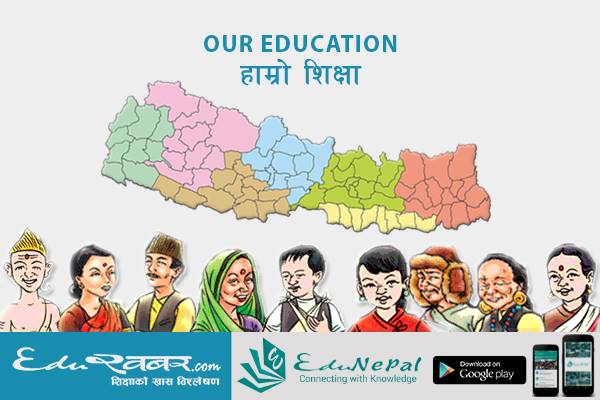
Kathmandu - Nirmal Lama (name changed) is a ninth grader studying in Shanti Niketan High School located at Ram Mandir Bhaktapur. Every day after the end of school, he goes to Suryabinayak Chowk and helps his mother Phoolmaya in selling vegetables.
“When my friends are doing their homework, I am selling vegetables,” Lama says adding that his mother is the sole bread earner of the family. He said the drinking habits of his father had created troubles for the family and he cannot turn blind eye to the ordeals of his mother.
“While helping my mother sometimes I am so busy that I cannot even complete my homework,” he laments. He says he is being unable to concentrate on his studies because of the hardship and troubles in the family.
Nirmal is just an example. The plight of another student Subha Baral (name changed), who studies in Koteshwor Saraswathi High School is no different.
Baral repeatedly fails to reach school within the schedule due to her work.
When her principal recently asked why she was late, Subha replied, “Sir my master makes me work till 10 am in the morning. He won’t let me come to school before that. Today, I came to school without even lunch. I always come in a similar rush.”
Then she started weeping and the school principal Pushpalal Kunwar could not offer any remedy.
“The public schools are not performing well in examinations because their students are from poor family backgrounds. They cannot even make up to school on time,” says Kunwar.
The ordeals of the students in those two community schools of Kathmandu represent the harsh reality of students across public schools in the country.
Subha Baral, who works as a child labour says, “It is very hard to continue studies when you are bound to work for others, they always come up with work and excuses.”
Principal Kunwar says students coming from such backgrounds are not even open to share their plight. He said even socio psycho counselling programmes carried out by schools have not produced desired outcome.
Unlike private schools, most of the students in public schools come from a poor economic background. According to teachers, many of such students do not have books and copies, they show up in schools late and without completing their homework’s and their dresses are not clean and tidy among others.
“We are teaching students with extreme poverty,” says Mahendragopal Karmacharya, the Principal of Shanti Niketan High School. Many of the students in public schools are facing economic burden.
Principal Kunwar of the Koteshwor Saraswathi High School says many of the students do not have sufficient money to buy dresses. According to him, most of the students come from families whose parents work in sand mines, carpet factories and brick kilns among others. Teachers say many students have accorded less priority to studies because of the financial burdens.
Despite political change in the country, the quality of public schools is eroding and experts point out that the private and public schools have created a huge gap between the people. Sociologist Dr. Mukti Rijal says parents who send their kids to public schools feel demoralised.
“Education should not be a matter of buying and selling. It should be explained properly. Until this is done, this will directly affect the growth and development of students from rich and poor families.”
Another expert Dr. Suman Komal Tuladhar says the investment in only the physical infrastructure of schools is a major problem. She says more awareness on social values and reforms on public education could help bridge the gap.
The new constitution has defined education as the fundamental right of the people. Experts however say the changing social dimensions should be taken into account and measures should be implemented for reforms in public education to address the current challenges.
(This storyis the part of a radio programme entitled 'Hamro Sikshya' which discusses the opportunities and challenges in public education in the new federal setup. The programme is produced by edukhabar.com with the support of Action Aid Nepal. It is aired from Radio Paschim Today based in Dhangadi, Radio Doti based in Doti and Radio Taha Sanchar based in Kathmandu. The radio programme can also be tuned through this link: http://www.edukhabar.com/audio/28 and also through aneroid app Edunepal.)
प्रतिक्रिया